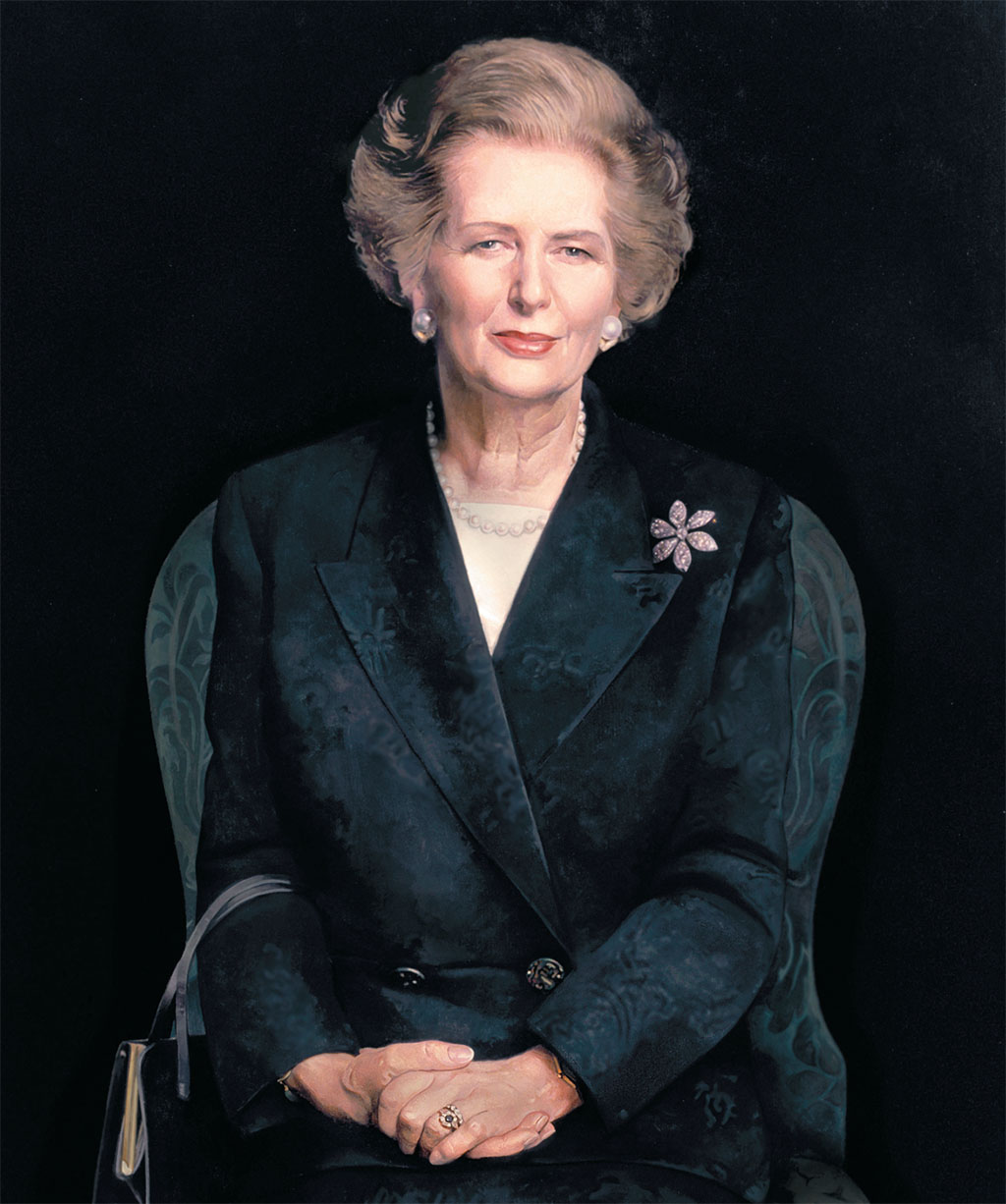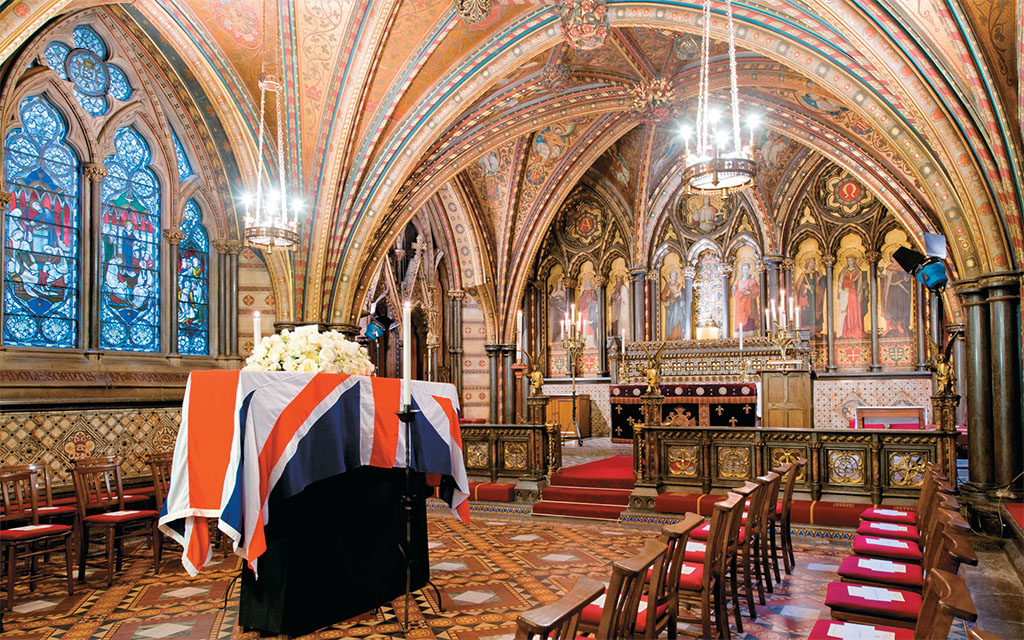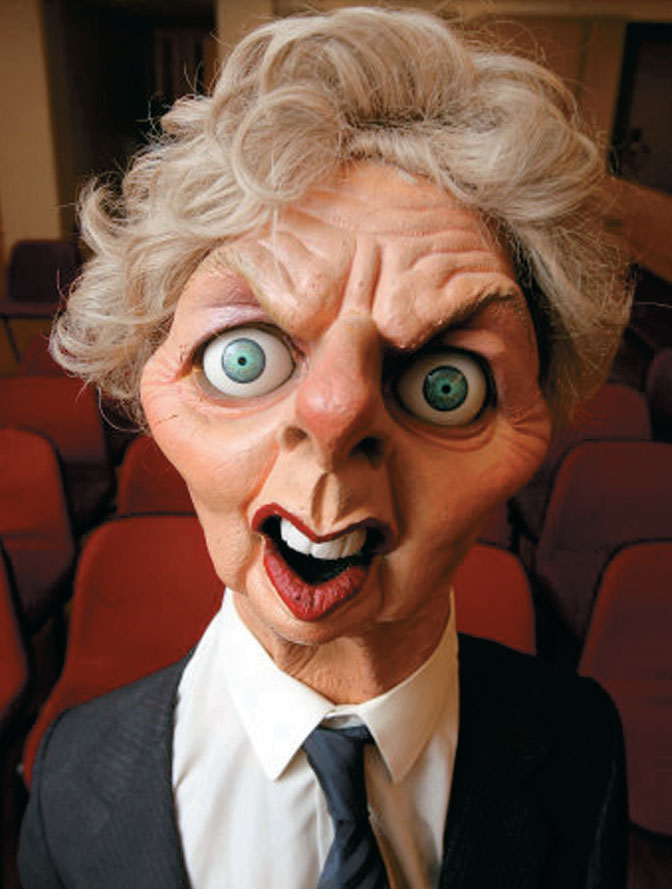
“WATCHING THE FUNERAL, finding it hard not to feel we are today somehow burying England,” tweeted British journalist Melanie Phillips.
“We will do well to honor Margaret Thatcher appropriately. She saved Britain,” noted Prime Minister David Cameron in the House of Commons following Lady Thatcher’s passing.
While there are plenty of people who vehemently take issue that Maggie Thatcher, the Iron Lady, saved Britain, there is certainly no question that she changed it, and changed it more markedly than any politician in more than a century. Whether you loved her or hated her for the policies she successfully championed during her 11 years as prime minister, Margaret Thatcher was important.
I was in the York Visitors Centre when word spread of Margaret Thatcher’s death. For some reason it was one of those indelible moments—like remembering where you were when JFK was assassinated or on the morning of 9/11. The rest of that cold April day in York memories flooded back to me of those years in the ’80s when the Iron Lady was very much in charge and trod mightily for Britain on the world stage.
I was there in 1982, when Argentina launched its occupation of the Falkland Islands. Without hesitation, Thatcher took the country to an unlikely war to protect its sovereignty and the freedom of British citizens on a set of rocky islands 12,000 miles from the British mainland. She persevered, and the British military and people rose to the occasion in true British fashion. She gave the country something to cheer about and justly express national pride.
I was there in 1983, when hundreds of thousands of working-class families across Britain were giddy that Maggie’s housing policy would allow them to buy their public housing “council house” at a discount—and get them on the housing ladder. I remember, all of a sudden, old Will had something to leave his grandson; he was chuffed indeed.
I was there in 1984 when Arthur Scargill led the miners out on strike and Margaret faced down the union for more than a year. It wasn’t pretty, and it wasn’t fun for anyone.
[caption id="InRemembranceofMargaretThatcher_img1" align="aligncenter" width="1024"]

REUTERS
In the two or three days following the former prime minister’s passing, all the news coverage on British media was devoted to covering the topic from every perspective. Not unsurprisingly, much attention was paid to the “divisive” nature of Thatcher’s person and her legacy. For all the just accolades and warm memories shared of Margaret Thatcher, the media repeatedly showed snippets as well of miners in South Yorkshire or elsewhere in celebratory spirits at the death of this old enemy.
I know that side, too. Over the past 20 years, I have spent more time in the Valleys—the coal fields of South Wales than any other corner of Britain. It’s a place and a people for which I have great affection. In the ’70s a quarter of a million men worked in the coal fields; now the mines are silent and more than 20 years after the closure of the last pits, memories of Margaret Thatcher are still hot, and there is no love lost for the Conservative party generally. Employment, a way of life and an industry are gone; the social cost is still high; and, yes, Thatcher was largely responsible (though mine closures had already begun under Harold Wilson). Throughout Britain’s coalfields, the story is the same—in Yorkshire, Durham, the Scottish lowlands and such. That’s where Thatcher is denounced and vilified to this day. It’s quite understandable why people bear such feelings. When your own life is so materially impacted, it’s rather difficult to step back and take a larger view.
But take it we must, and history shall. In the late ’70s before Margaret Thatcher’s first electoral victory, Britain was widely scorned as the “sick man of Europe.” Its economy was in a shambles following three decades of Labour’s deficit spending and social engineering. Inflation ran above 13 percent in 1979 (it wasn’t much better in this country). All of Britain’s traditional heavy industries had been nationalized. The State owned the coal mines and the steel works, automotive manufacturing, telecommunications, railroads, British Airways and even Thomas Cooke. The state companies all ran at a deficit, subsidized an average of £300 million each per year by a depleted treasury and usurious tax rates. It took six months to get a telephone, garbage piled up in Trafalgar Square and widespread power outages meant that many industries could only function three days a week.
At the same time, the workforce all belonged to the trade unions, which enjoyed a closed shop in monopoly, state-owned industries. Year after year the union leaders took their unions out on strike, decimating Britain’s industrial output and virtually holding the Government to ransom. In 1979 Britain lost 29 million working days to industrial action. The difference between British and American labor law was significant: British unions did not have to poll their members before a strike. There was no ballot; union leaders could simply call their members out on strike. In practice, that meant that the British economy and the production of its heavy industry lay hostage to the dictates of eight or a dozen labor union bosses.
Margaret Thatcher ran the 1979 election with a straightforward slogan: “Enough is enough.” The British electorate agreed and Maggie swept into 10 Downing Street with a clear vision for what she saw must be done. No, there was no soft landing. There never is. Unemployment and interest rates both rose significantly as the stalwart Iron Lady reformed British labor law, privatized 33 national companies, revised Britain’s outmoded banking regulations and took a lead in the machinations of world politics that brought an end to the Cold War.
By the late ’80s, however, the companies that had been draining the treasury with subsidies were paying £3 to 5 billion a year to the Exchequer. People who never dreamed of owning shares bought them in the public offerings; British Airways’ IPO was five-times oversubscribed, not by speculating merchant banks, but by ordinary Brits. Consumer prices fell as well with privatization: telecom charges dropped 40 percent, natural gas prices 25 to 40 percent and airport charges by 10 percent.
[caption id="InRemembranceofMargaretThatcher_img2" align="aligncenter" width="1024"]

REUTERS
When Thatcher took office, some 26 percent of the British people owned their own home; when she left office in 1990, 41 percent were homeowners. Inflation was below 3 percent. British manufacturing production had risen 7.5 percent. In her spare time, she faced down the IRA and signed the Anglo-Irish Agreement of 1985, and brokered the relationship between Reagan and Gorbachev that brought the Cold War to an effective conclusion.
Avowed statists of any description are bound to take issue with a political leader who famously believed, “There is no such thing as society; there are individual men and women, and there are families.” Thatcher believed in the moral primacy of the individual, not of the State, consistent with the world view of her Methodist upbringing, and with the aspirational liberalism of John Stuart Mill that championed responsibility and authority to individuals for their own lives. Her critics blithely call that “greed” and “selfishness;” her champions call it freedom.
[caption id="InRemembranceofMargaretThatcher_img3" align="aligncenter" width="672"]

LEWIS WHYLD/PA WIRE
The funerals of past political leaders are generally low-key affairs in Britain. Not since Churchill’s death in 1965 had the Queen attended a former PM’s funeral, nor had the bells of Big Ben been silenced. Nor had the streets of London been lined with tens of thousands of ordinary Britons paying their respects. Largely, the ideological gloves were laid aside for that day. At the service in St. Paul’s Cathedral, it was not her political accomplishments that were remembered, but her personal character, her warmth and human kindness, her humor and her sense of duty.
Even former Liberal Democrat leader Lord Ashdown, certainly no fan of Thatcher’s leadership, described her as “the greatest prime minister of our day.” In its editorial following Margaret Thatcher’s death, the Daily Telegraph summarized just why Lord Ashdown’s assessment is deserved: “So signal was the Iron Lady’s character that she would have been a giant in any age…She may have divided opinion, and occasionally even outraged it, but she lifted this nation from decline and despair, and restored it to success, influence and prosperity. It is hard to appreciate the scale of her achievements, and to acknowledge the depth of our debt to her…If Britain is still Great, it is because of this greatest of Britons.”
— Dana Huntley





Comments